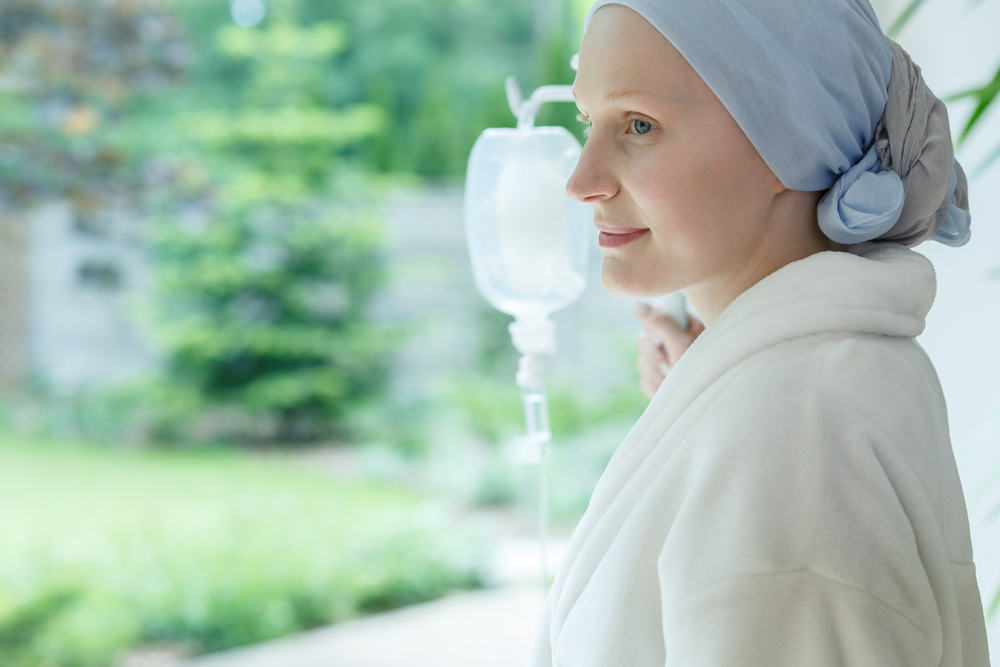Most studies on the medical use of cannabinoid derivatives in a cancer context were carried out in adult patients. However, as it is often observed in clinical practice, there are benefits of the plant also in pediatric cancer patients. Therefore, we have broken down for you the main impressions of this systematic review on the use of medical cannabis in pediatric oncology.
In the review Medical marijuana in pediatric oncology: A review of the evidence and implications for practice,the authors highlight the potential for medicinal cannabis in caring for children with cancer. Check them out are.
What are the possible benefits of cannabis in pediatric oncology?
The article Should Oncologists Recommend Cannabis? também traz um compilado de estudos que reforçam o potencial da Cannabis medicinal no tratamento adjuvante ao câncer, explorando os seguintes tópicos:
- Antiemetic effect
- Appetite stimulant
- Pain reduction
- Sleep improvement
- Decrease in anxiety
- Antineoplastic potential
>>> Learn more at Should Oncologists Recommend Cannabis?
Below, we detail some of these effects, referencing articles mentioned above and also other published works.
Antiemetic effect
In the United States, two randomized, double-blind trials, including pediatric cancer patients, demonstrated that delta-9-THC is a superior antiemetic to placebo.A third study even shows that THC has more benefits than prochlorperazine..
Read at:
>>> Delta-9-tetrahydrocannabinol as an antiemetic in cancer patients receiving high-dose methotrexate;;
>>> Antiemetic effect of delta-9-tetrahydrocannabinol in patients receiving cancer chemotherapy.;
>>> Antiemetics in patients receiving chemotherapy for cancer: a randomized comparison of delta-9-tetrahydrocannabinol and prochlorperazine.
Appetite stimulant
Some cancers can cause you to lose appetite even in early stages. In advanced cases, this symptom ends up affecting 80% to 90% of patients. Weight loss in cancer is considered seriousbecause it is also associated with loss of muscle mass and functional status.
There are studies showing that Medical Cannabis and its derivatives have the potential to stimulate appetite in adults with HIV/AIDS. Researchess comparing dronabinol (a synthetic version of THC) to placebo also suggests that the cannabinoid derivative is more effective in fighting anorexia in patients with cancer.
Check out the studies:
>>> Dronabinol and marijuana in HIV+ marijuana smokers: acute effects on caloric intake and mood
>>> Dronabinol as a treatment for anorexia associated with weight loss in patients with AIDS
Adjuvant in chronic pain
A report from the National Academies of Sciences, Engineering and Medicine (NASEM), which represents a national collective scientific academy for the United States, supports the finding that adults with chronic pain treated with cannabinoid derivatives are more likely to have their pain symptoms reduced..
>>> Read at The health effects of cannabis and cannabinoids: the current state of evidence and recommendations for research..
Generally, it is recommended that when treating patients who have developed chemotherapy-induced peripheral neuropathy, a Cannabis-based drug is prescribed in refractory situations to the use of other drugs.
Another very important point is that medicinal Cannabis shows synergy of action with opioids, often prescribed to control cancer pain. Most patients with chronic pain, who regularly make use of opioids and start treatment with medicinal cannabis, manage to prevent the development of tolerance to opioids and, consequently, avoid the need for increased dosage.
Adjuvant for insomnia and mood disorders
The same NASEM report also highlights evidence that cannabinoids improve sleep pattern of individuals with sleep disorders related to chronic pain, fibromyalgia, multiple sclerosis and obstructive sleep apnea syndrome.
It is common for cancer patients to report difficulty sleeping. Studies show that people with pain-causing illnesses, including cancer pain and peripheral neuropathic pain, improved their sleep pattern when using THC- and CBD-based formulation (1:1).
>>> Read at Cannabis, pain, and sleep: lessons from therapeutic clinical trials of Sativex, a cannabis-based medicine
Seizure Treatment
Seizures can be the first symptom of brain tumors in children and teenagers. Clinical trials have already proven that using CBD in the treatment of children with difficult-to-control seizure disorders is safe and effective.
>>> Learn more at Trial of Cannabidiol for Drug-Resistant Seizures in the Dravet Syndrome
Antineoplastic potential
There is evidence that cannabinoid derivatives also have antineoplastic effects. in vitro and some in vivo studies in vivo have demonstrated antineoplastic potential in some of the most common malignant neoplasms in childhood and adolescence, such as lymphoma, leukemia, rhabdomyosarcoma, pheochromocytoma, glioblastoma, astrocytoma, neuroblastoma,, among others.
Read at:
>>> Cannabinoids: potential anticancer agents
A 2021 study on the use of Cannabis in pediatric oncology provides data that may encourage other publications on this topic:
- Leukemia was the most frequent diagnosis in children whose caregivers reported the use of medicinal Cannabis, and most of them were also under active cancer treatment;
- All respondents who used Cannabis showed improvement in symptoms;;
- Oral administration, through oils, was the most commonly used formulation;
- Information on Cannabis was received from other parents or an attending physician;
- Monthly spending on Cannabis was, on average, less than $50.
Although there are still few studies with children and teenagers, clinical practice and research carried out with adults indicate that the use of Cannabis in children with cancer can bring several benefits to them.
The fact that medical Cannabis is already allowed in the treatment of children in most of the United States is further evidence that it is only a matter of time for us to have more documented therapeutic gains.
If you’d like to stay up to date on medical Cannabis research, make sure that you’re following our blogAnd if you are interested in applying Endocannabinoid Medicine safely and effectively in your medical practice, subscribe to the WeCann Academy’s International Certificate in Endocannabinoid Medicine We are a global community of studies in Endocannabinoid Medicine, which brings together specialists of national and international relevance joining scientific knowledge and practical experience in a highly qualified manner.
References
Abrams DI. Should Oncologists Recommend Cannabis?. Curr Treat Options Oncol. 2019;20(7):59. Published 2019 Jun 3. doi:10.1007/s11864-019-0659-9
Ananth P, Reed-Weston A, Wolfe J. Medical marijuana in pediatric oncology: A review of the evidence and implications for practice. Pediatr Blood Cancer. 2018;65(2):10.1002/pbc.26826. doi:10.1002/pbc.26826
Beal, J. E., Olson, R., Laubenstein, L., Morales, J. O., Bellman, P., Yangco, B., Lefkowitz, L., Plasse, T. F., & Shepard, K. V. (1995). Dronabinol as a treatment for anorexia associated with weight loss in patients with AIDS. Journal of pain and symptom management, 10(2), 89–97. https://doi.org/10.1016/0885-3924(94)00117-4
Brisbois, T. D., de Kock, I. H., Watanabe, S. M., Mirhosseini, M., Lamoureux, D. C., Chasen, M., MacDonald, N., Baracos, V. E., & Wismer, W. V. (2011). Delta-9-tetrahydrocannabinol may palliate altered chemosensory perception in cancer patients: results of a randomized, double-blind, placebo-controlled pilot trial. Annals of oncology : official journal of the European Society for Medical Oncology, 22(9), 2086–2093. https://doi.org/10.1093/annonc/mdq727
Chang AE, Shiling DJ, Stillman RC, et al. Delta-9-tetrahydrocannabinol as an antiemetic in cancer patients receiving high-dose methotrexate;. Ann Intern Med. 1979;91(6):819
Chapman, S., Protudjer, J., Bourne, C., Kelly, L. E., Oberoi, S., & Vanan, M. I. (2021). Medical cannabis in pediatric oncology: a survey of patients and caregivers. Supportive care in cancer : official journal of the Multinational Association of Supportive Care in Cancer, 10.1007/s00520-021-06202-z. Advance online publication. https://doi.org/10.1007/s00520-021-06202-z
Devinsky O, Cross JH, Laux L, et al. Trial of cannabidiol for drug-resistant seizures in the Dravet syndrome. N Engl J Med. 2017;376(21):2011–2020.
Galve-Roperh, I., Sánchez, C., Cortés, M. L., Gómez del Pulgar, T., Izquierdo, M., & Guzmán, M. (2000). Anti-tumoral action of cannabinoids: involvement of sustained ceramide accumulation and extracellular signal-regulated kinase activation. Nature medicine, 6(3), 313–319. https://doi.org/10.1038/73171
Guzmán M. (2003). Cannabinoids: potential anticancer agents. Nature reviews. Cancer, 3(10), 745–755. https://doi.org/10.1038/nrc1188
Haney M, Rabkin J, Gunderson E, Foltin RW. Dronabinol and marijuana in HIV+ marijuana smokers: acute effects on caloric intake and mood. Psychopharmacology. 2005;181(1):170–178.
National Academies of Sciences, Engineering and Medicine. The health effects of cannabis and cannabinoids: the current state of evidence and recommendations for research.. Washington, DC: National Academies Press; 2017.
Russo EB, Guy GW, Robson PJ. Cannabis, pain, and sleep: lessons from therapeutic clinical trials of Sativex, a cannabis-based medicine. Chem Biodivers. 2007;4(8):1729-1743. doi:10.1002/cbdv.200790150
Sallan SE, Cronin C, Zelen M, Zinberg NE. Antiemetics in patients receiving chemotherapy for cancer: a randomized comparison of delta-9-tetrahydrocannabinol and prochlorperazine. N Engl J Med. 1980;302(3):135–138.
Sallan SE, Zinberg NE, Frei E, 3rd. Antiemetic effect of delta-9-tetrahydrocannabinol in patients receiving cancer chemotherapy.. New Engl J Med. 1975;293(16):795–797.




